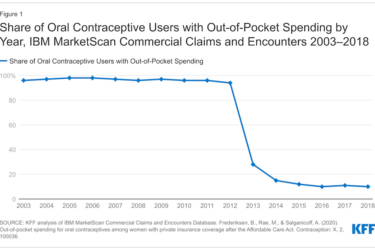 In an important series last year, ProPublica partnered with NPR to report on maternal deaths in the United States. In the ”Lost Mothers, Maternal Care and Preventable Death” series, ProPublica reporter Nina Martin, engagement reporter Adriana Gallardo and NPR special correspondent Renee Montagne, reported that for the past two decades maternal mortality has declined in other affluent countries while the rate of maternal deaths has been rising in the United States. Here’s a link to NPR’s companion site, “Lost Mothers: Maternal Mortality in the United States.”
In an important series last year, ProPublica partnered with NPR to report on maternal deaths in the United States. In the ”Lost Mothers, Maternal Care and Preventable Death” series, ProPublica reporter Nina Martin, engagement reporter Adriana Gallardo and NPR special correspondent Renee Montagne, reported that for the past two decades maternal mortality has declined in other affluent countries while the rate of maternal deaths has been rising in the United States. Here’s a link to NPR’s companion site, “Lost Mothers: Maternal Mortality in the United States.”
Today, 700 to 900 American women die during pregnancy, childbirth and postpartum, the highest rate in the developed world, they reported.
Among the many reasons for high maternal mortality in the U.S. are a fragmented health system that makes it hard for new mothers, especially those without good insurance, to get the care they need, ProPublica and NPR reported. New mothers are older than they used to be and so have more complex medical histories; there’s a high rate of Caesarean-sections in the United States, which leads to more life-threatening complications; and there’s confusion about how to recognize and treat obstetric emergencies, which makes caregivers more prone to error, they added.
This year, their work was a finalist in the Pulitzer Prize Explanatory Reporting category this year. The entire series is illuminating about this serious (and growing) deficiency in the U.S. health system.
Recognizing these failings, employers have been working to reform the payment and delivery system for pregnancy and childbirth for many years. One of the organizations leading that effort is the Catalyst for Payment Reform, an independent, nonprofit corporation that helps employers and other health care purchasers get better value for what they spend on health care.
AHCJ will host a webcast with CPR Executive Director Suzanne F. Delbanco, M.P.H., Ph.D., on what employers are doing to improve maternal health. One of CPR’s priorities this year and for each of the past several years has been efforts to reform the payment and delivery system for pregnancy and childbirth.
For employers and state Medicaid agencies, maternity care is a high cost clinical area with highly-varied clinical outcomes, CPR says on its website. In addition, poor maternity care leads to too much intervention in labor and delivery resulting in added expense and worse outcomes for mothers and babies. For these reasons, employers encourage physicians and other providers to adhere to clinical guidelines for maternity care.
Among the resources CPR offers to its member employers are a brief on maternity care payment. In the brief, CPR explains how maternity care practices in the United States. have moved away from evidence-based care to what CPR calls excessive and unnecessary interventions, including early elective delivery, which can lead to poor health outcomes for mothers and babies.
 The webcast will be live on Wednesday, July 18, at 1 p.m. ET and recorded for members who want to watch it on demand.
The webcast will be live on Wednesday, July 18, at 1 p.m. ET and recorded for members who want to watch it on demand.
For more information from CPR on maternity care, check out these resources
- Why maternity care providers should embrace payment reform
- South Carolina’s Birth Outcomes Initiative
And read about the lack of data on maternal mortality in this piece from the Connecticut Health I-Team.






